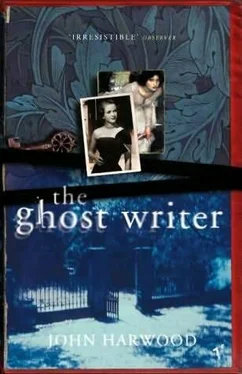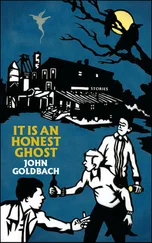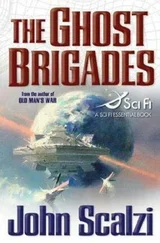'It was-a bomb. We-I was away at school. In Devon. Away from the bombing.'
For a moment she had seemed genuinely contrite. Now she sounded evasive.
'And Viola?'
'She looked after me. Until she died. Just after the war. Then I had to go out to work.'
'But it was a big house, you had servants. Wasn't it insured? Didn't Viola leave you anything?'
Another long pause.
'It all went in death duties. There was just enough left to pay for my typing course. She did everything she could for me. That's all. '
'Mother it is not all and you know it. What about "Seraphina"?'
'I don't know what you're talking about.'
'Viola's story. In the drawer with the photograph.'
'I don't remember any story.'
I opened my mouth to object, and realised I couldn't push it any further.
' Why don't you want to talk about your, past?'
'For the same reason you never talk about your- friend, I suppose. It's no one else's business. Not even yours.'
For the first time in seven years, my mother had acknowledged Alice's existence.
'No, it's not the same. Alice isn't-she's nothing to do with you-'
'She's taken you away from me.'
'That's not fair! Anyway, I'm almost twenty-one, people leave home and get married-'
'So you're getting married? Well thank you for mentioning it-'
'I didn't say that!'
'Well are you or aren't you?'
'I don't know yet!'
We were both almost shouting.
'I don't want to talk about her, Mother,' I said more quietly.
'But you're going to see her.'
'I-I just don't want to talk about her.'
'Gerard,' she said heavily, after a long silence, 'I know you think I'm jealous. A jealous mother who won't let go. Nothing I say will make any difference. Just remember: I tried to keep you safe.'
'Safe from what, Mother?'
But all she said was, 'I'm going to bed now.'
'Tell me one thing, then,' I said, 'I won't ask you any more. Where exactly was Staplefield? The house, I mean. Was it in Staplefield village?'
Her chair creaked. She stood up and moved stiffly towards the door. I thought she would leave without speaking, but in the doorway she turned, light flashing from the lenses of her spectacles.
'Going to look for Staplefield would be a complete waste of money. There's nothing left. Nothing.'
She flung the last word over her shoulder. It hung in the air like the smell of charred paper as her footsteps receded along the hall.
I HAD ALWAYS IMAGINED THE DEAD HEART AS A FEATUREless, Saharan expanse of sand. From thirty-five thousand feet, I watched the patterns unrolling beneath the wing, fantastic whorls and cross-hatchings and striations, ochreous yellows and earth-browns and purples and deep rust-reds, until the hostess asked me if I would mind closing my blind so the other passengers could watch the movie. I did mind, never having been in a plane before, but I closed it anyway and sat holding my unopened book.
Twenty-two hours to Heathrow. I didn't seriously believe-did I?-that after eight years of undying adoration Alice would have me turned away at the door? Her letters were as tenderly passionate as ever. I had written to tell her I would be at the Stanhope Hotel, Sussex Gardens, London W2, which sounded leafy and grand, despite being called 'budget' in the brochure. Admittedly it was January, so there might not be many leaves, but there was sure to be a letter waiting when I arrived. From the hotel I would ring Penfriends International, who were bound to be in the phone book, though I still had only their box number. Maybe I should have written ahead to Juliet Summers, but I'd been over and over that. Much better to plead my case in person.
Since I had stopped pleading with Alice to change her mind, neither of us had mentioned the possibility of our meeting. Her view of my coming to live in England was seemingly unchanged: she would love to feel that I was so much closer, but only if I could persuade my mother to join me. Alice and I were pretending to believe that, while it would be wonderful to be in the same country at last, the purpose of my trip was to look around for places where my mother might be persuaded to settle. And to see Staplefield, assuming my mother really had invented the fire. But how could Alice possibly, doubt that I'd come looking for her? And since she hadn't made me promise not to, she must-mustn't she?-be waiting for me to find her.
The businessman in the seat next to me had put away his papers and fallen asleep. I knew already that I wasn't afraid of flying. So why did I feel so numbly apprehensive, as if something cold and leaden had lodged in the pit of my stomach and refused to dissolve, not just since take-off but for days beforehand?
Perhaps I was more anxious about my mother than I was willing to admit. She had been behaving as if I had a terminal illness rather than a three-week excursion fare to London. Not to mention a job as an assistant librarian at Mawson University College, starting in February. I couldn't imagine how I would tear myself away from Alice, but three weeks was all I could afford; I would have to come back to save more money and apply for permanent residence. If my mother couldn't bear the thought of life without me, she would just have to overcome her pathological fear of return, or travel, or whatever it was. It didn't matter how often I repeated that I was a thousand times more likely to die in a car than a plane crash; she treated all of my attempts at reassurance as irrelevant interruptions. I noticed that she had grown even more intolerant of noise; she could not bear the radio on, and reacted to the ringing of the phone as if it were a fire alarm. She seemed to be listening to-or for-sounds inaudible to anyone else.
Since the night, just over a year ago, when she told me Staplefield had burnt down, she had not once referred to Alice. Our day-to-day life had gone on as before, as if the no-go areas did not exist. I had learned to cook in spite of her protests, though she still would not let me near the washing-machine or the iron, or accept any money for board. But the balance between us had altered. Now it felt as if she was the one on the defensive. I won't mention your friend, again, her silence seemed to say, so don't ask me any more about my past.
I was shocked by my reaction to the loss of Staplefield. My rational self stood helplessly by while I grieved for the place as if I had watched it burn with everything I loved inside it. Knowing that these feelings were utterly illogical didn't seem to help in the slightest. Until one night, in the middle of a letter to Alice, it struck me that in all my happily-ever-after daydreams, we simply took over Alice's room, whereupon it was magically incorporated into Staplefield, to which I was of course the rightful heir. And now we couldn't live there, because it had burnt to the ground. Even after this disturbing recognition-which I did not mention to Alice-I was troubled by a kind of waking nightmare in which I stood alone at her window looking out at a charred, blackened landscape, feeling that I was somehow responsible for the devastation.
Yet at the same time-and this made my distress seem even more irrational-I still suspected my mother of inventing the fire on the spot, to block any further approach to Staplefield, for reasons I couldn't begin to fathom. Alice, for all her reluctance to join in any criticism of my mother, plainly thought I was right. 'Perhaps', she had written,
there was some sort of family quarrel, after your great-grandmother died, and your mother was disinherited-of course she couldn't possibly have done anything to deserve that. But I know how it feels, having to let go of everything you love. Perhaps it's easier for your mother to say the house went up in smoke than to admit that other people are living in it. And surely she'd have said something about the fire, when you were little, so as not to get your hopes up? I mean, of living there one day. Perhaps when you were small she still hoped Staplefield might come back to you, and then something happened, something final that meant it could never be hers, or yours, and that's why she stopped talking to you.
Читать дальше












